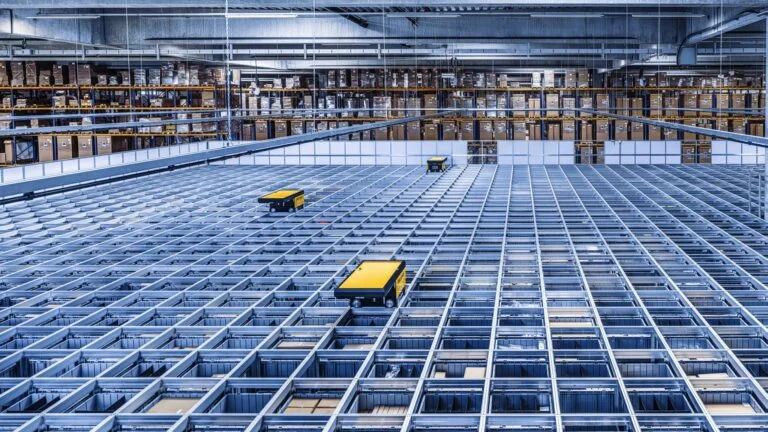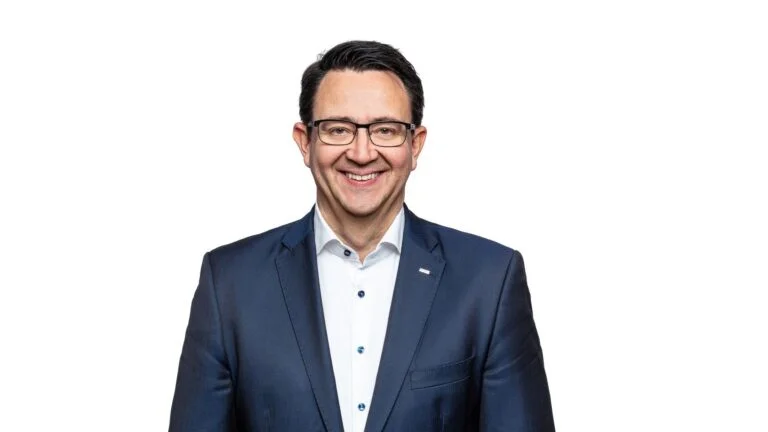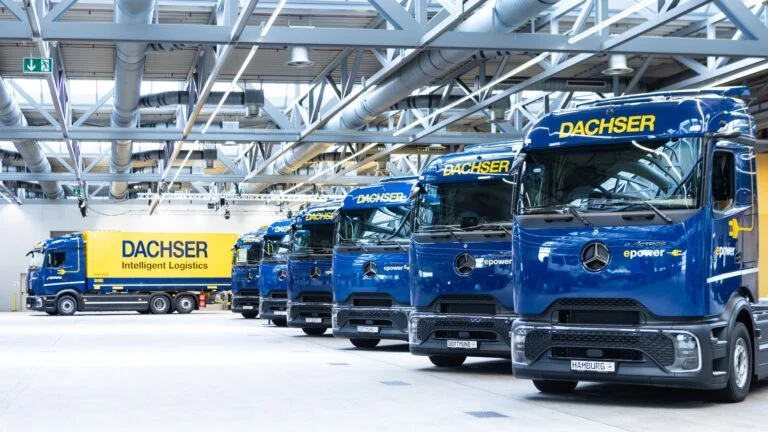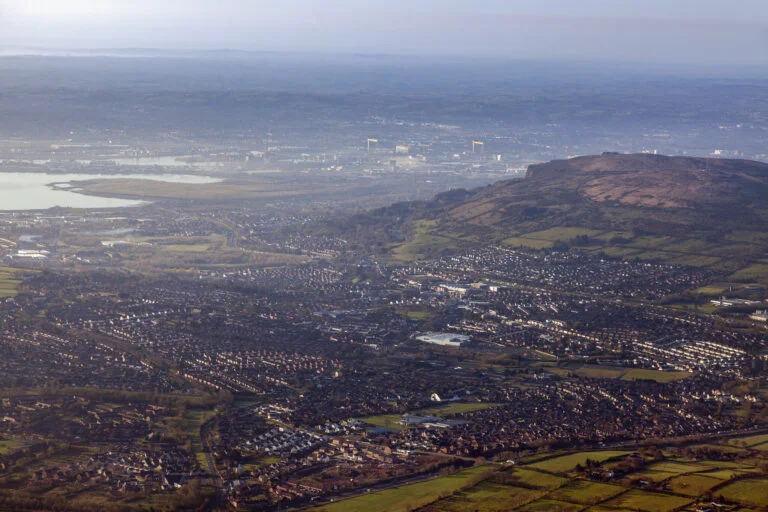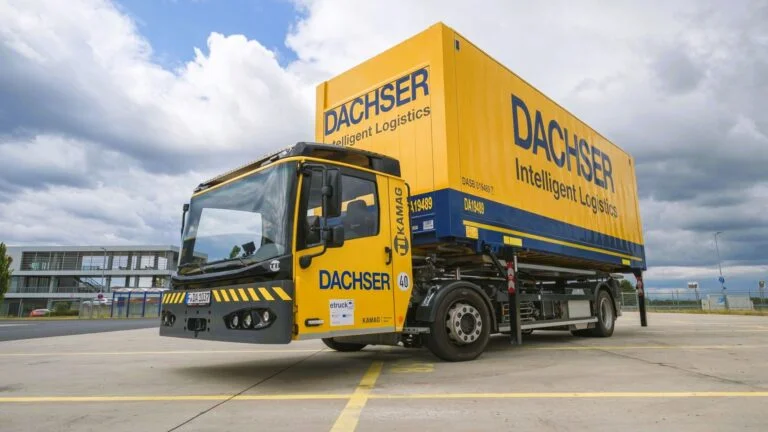A dawn of opportunities in the Maghreb: Connecting growth markets with Europe
By Marcus Schick I 9 minute read
14/08/2025
Industry and retail are facing a strategic realignment: their supply chains need to be shorter, more robust, and easier to plan. The emerging economies in the Maghreb, especially Morocco, are moving into focus as high-performance locations. DACHSER ensures they are seamlessly connected to the European logistics network.
Quick Read
Faltering economic momentum and the international tariff dispute, which has meanwhile become very heated, have again made one thing quite clear: the demands on global supply chains are increasing. Procurement needs to be not only cost-efficient but also geopolitically stable, quickly accessible, and logistically manageable. That means the Maghreb, as a neighbor to the European market, is increasingly becoming a key region for industrial companies. With their competitive production conditions and a growing industrial sector, North Africa’s emerging economies are already sought-after manufacturing locations and sales markets.
Logistics plays a central role here and customer expectations are high. Companies want reliability, defined transit times, transparent processes, customs security, and comprehensive system integration. “This is exactly where DACHSER comes in: by providing daily connections, full integration into the European network, digital processes, and modern handling platforms, we enable efficient workflows and reliable customs clearance in the Maghreb,” explains Alexander Tonn, COO Road Logistics at DACHSER. “The markets of Morocco, Tunisia, and—in the eastern Mediterranean— Türkiye offer promising prospects for strong growth in the future. At the crossroads where Europe, North Africa, and the Middle East meet, logistics is a key driver. Service quality, transparency, and reliability for the best possible flow of goods and speed—this is exactly what customers expect in growth markets.”
By providing daily connections, full integration into the European network, digital processes, and modern handling platforms, we enable efficient workflows and reliable customs clearance in the Maghreb.
Looking to the west, Tanger Med is a central connection point between the emerging economies of the Maghreb and the rest of the world. Opened in 2007 and continuously expanded since then, this deep-sea port and its free trade area is now a global logistics center on the Strait of Gibraltar. Connected to 186 other ports worldwide, it has the capacity to handle the processing of over nine million containers, the transit of seven million passengers and 700,000 trucks, and the export of one million vehicles. This also makes Tanger Med an industrial location for more than 900 companies from a variety of sectors, including automotive, aerospace, logistics, textiles, and retail.
“In the last three years, Tanger Med has further strengthened its position, and it is set to become even more important,” says M’hamed Chraibi, Regional Managing Director Maghreb & Türkiye at DACHSER. “To begin with, the port for us was a gateway to Europe and a pillar of nearshoring—now it’s also developing into a gateway to Africa.” In the search for new markets, European and global companies are increasingly setting their sights on Africa. “For those companies, Tanger Med is an ideal launching pad for reaching this continent.”
ports worldwide are connected to the deep-sea port Tanger Med.
Recognizing potential early on
DACHSER has had a presence in Morocco since 1984 and saw the potential of the Tangier region early on: in 2003, the logistics provider opened its first location near the port, followed by its own warehouse at Tanger Med Hub in 2021. Offering 5,500 m2 of floor space and more than 7,000 pallet spaces, the state-of-the-art warehouse serves as the successor hub to the facility in Casablanca, which had reached the limits of its capacity. Customers from industry in particular appreciate the proximity to the port. “Our advantage in Tanger Med is that we can carry out order preparation and labeling for European markets at local conditions,” Chraibi explains. As a result, processing costs are significantly lower than in Europe—a cost and speed advantage that DACHSER can pass on to its customers.
“We have built a stable bridge between the continents,” Chraibi continues. The focus here is on procurement and distribution transport for the automotive and textile industries, as well as for the aerospace and retail sectors. “We transport our customers’ goods reliably to and from Morocco and Tunisia—either as full truckload (FTL) or less than truckload (LTL) in combination with groupage services. In this way, we’ve created a perfectly functioning infrastructure over the years for seamless procurement and distribution logistics in the Maghreb.”
We transport our customers’ goods reliably to and from Morocco and Tunisia—either as full truckload (FTL) or less than truckload (LTL) in combination with groupage services. In this way, we’ve created a perfectly functioning infrastructure over the years for seamless procurement and distribution logistics in the Maghreb.
A head start through digitalization
“Our processes at Tanger Med are one hundred percent digitalized, ensuring speed and transparency” Chraibi says. Customs formalities in Morocco are also increasingly being supported and simplified digitally. The certification of DACHSER Morocco as an Authorized Economic Operator (AEO) marked an important milestone on this path. Customs procedures are considerably easier for “established senders.” As Chraibi says, “This enables us to achieve the best possible flow of goods and speed for our customers.”
Standard processes and DACHSER’s own systems, such as Domino and Othello, form the backbone of DACHSER’s operations worldwide in overland transport as well as in air and sea freight—and Morocco is no exception. “All processes, interfaces, and shipment tracking are or will soon be seamlessly linked to the European network. System rollout is poised to go live in Tunisia as well. DACHSER customers can rely on uniform quality and service standards outside the EU, too,” Chraibi says.
To make supply chains and flows of goods even more efficient and integrate them even more closely into the network, DACHSER relies on “gateways” it has set up. It established one of these in Strasbourg at the beginning of 2023, and trucks run on regular scheduled services every day between there and Morocco. “Our gateway lets us bundle volumes from all over Europe and organize scheduled departures for our own trucks with defined transit times,” Tonn says. An experienced team for the North African markets, a qualified customs department, and close connections to the European network ensure smooth processes and transparent transit times. Tunisia, where DACHSER has almost 40 years of market experience and has been operating its own country organization since then, has also been connected via direct groupage lines since the beginning of 2024: from the hubs in Strasbourg and Ungerhausen (near Memmingen), DACHSER operates groupage and charter transports to the port city of Radès near Tunis and to Bennane in the Monastir region several times a week.
With two gateways for general cargo, partial and full loads to Tunisia and Turkey, DACHSER has expanded its service portfolio in recent years and now offers its customers faster and more efficient road transport to and from both countries.
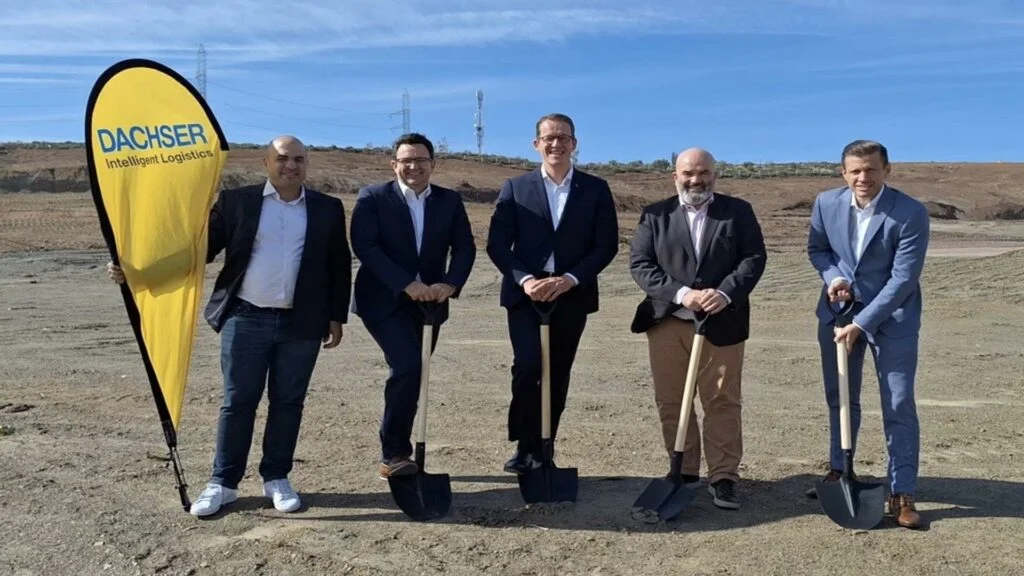
Investing in the future
The steadily growing importance of the region is also reflected in DACHSER’s long-term investment plans. To meet growing demand from its customers, the company is now setting up another bonded warehouse in the Marrakesh region in addition to the two it already has in Mohammedia and Tangier. This simplifies and speeds up import and export processes. In Tanger Automotive City, an industrial and logistics park not far from the port, DACHSER is also building a modern logistics campus on a 75,000 m2 site, scheduled for completion by June 2026. The new transit terminal, along with office and storage space, will bundle multimodal services and thus interweave all divisions—overland transport, air and sea freight, and warehousing. In the initial expansion stage, the facility will also feature a 20,000 m2 warehouse with its own bonded warehouse. The building will be the first private logistics building in Morocco to be certified to an international sustainability standard. This includes the architectural design, the materials used, and the equipment, such as the installation of solar cells on the roof and a system for recovering and reusing wastewater.
DACHSER Morocco focuses in particular on industrial customers from the textile, automotive, aviation, consumer goods, and electronic sectors, all of which have a strong presence in North Africa. “Our new platform will cover a wide range of services along the transport and logistics chain,” announced DACHSER CEO Burkhard Eling at the groundbreaking ceremony. Thanks to the facility’s proximity to the port, customers benefit from fast turnaround times and optimal transport connections. Chraibi adds: “Combining the Road Logistics and Air & Sea Logistics business fields at one location creates efficient end-to-end solutions that enable DACHSER to provide even better support for its customers’ nearshoring activities.”
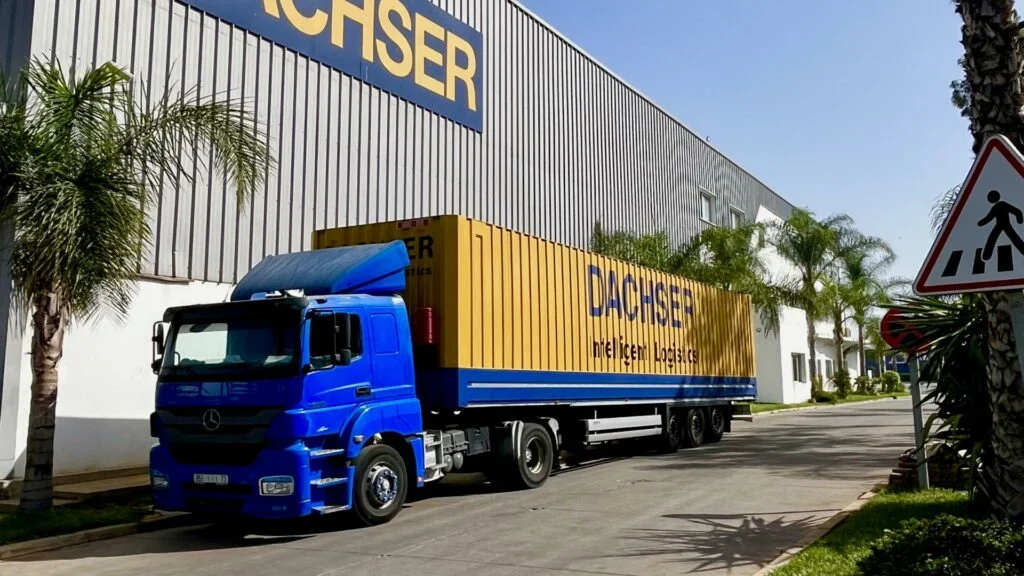
Chraibi’s team has big plans for the coming years. As Regional Managing Director Maghreb & Türkiye, he’s setting the course: “With additional regular scheduled services and capacity, the expansion of network locations, further process innovations, and responsible staff planning, we’re ensuring that we are always one step ahead of the region’s growth—and that we can continue to offer customers first-class logistics solutions in the future.”

